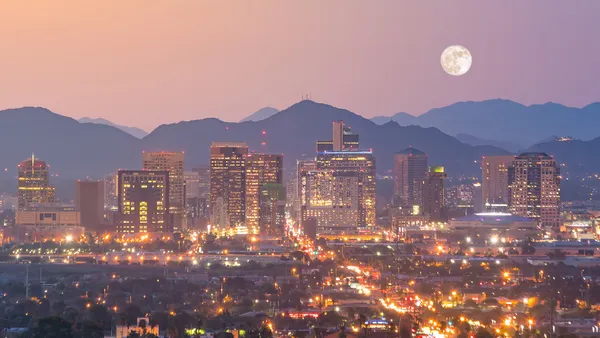Dive Brief:
- Amazon is in negotiations to lease up to 1 million square feet of office space in Boston, a move that might indicate the internet retailing giant has chosen the city as the location for its $5 billion second North American headquarters (HQ2), according to Fortune.
- A deal is in the works for Amazon to secure one building with 500,000 square feet of office space in the Seaport Square development, The Boston Globe reported, and potentially a second building with an additional 500,000 square feet. The first phase of the company's HQ2 project calls for it to acquire a similar amount of space by 2019. The retailer has said its new headquarters campus will be approximately 8 million square feet.
- Seaport Square is located in the South Boston Waterfront neighborhood, also known as Seaport. The area is home to a number of tech companies, and, if the Amazon lease deal goes through there, it would add to the significant amount of space the company already has under contract in Boston.
Dive Insight:
Boston has already been floated as a prime candidate for the new HQ2 because it is one of the U.S. cities where Amazon has research and development operations. Amazon, according to The Business Journals, has almost 1,000 workers in Boston who focus on Amazon Web Services, Audible, Alexa and speech-recognition software. Later this year, the opening of its Fort Point office will add 900 employees to the company's Boston ranks.
Seaport Square officials in November won approval from the Boston Planning and Development Agency to expand the project's original master plan by 20%, according to the Boston Business Journal, which includes additional housing and three performing arts centers.
After a winter storm earlier this month caused extensive damage within the Seaport district and other areas of Boston, some government officials have called for a barrier to be built in Boston Harbor that would help protect the city from future storm surges. The proposed "seawall" would be based on a design that was used in Rotterdam, The Netherlands, and would employ a floating pontoon gate. A current plan would cost approximately $10 billion, and would have the barrier reach from Logan International Airport to South Boston.











